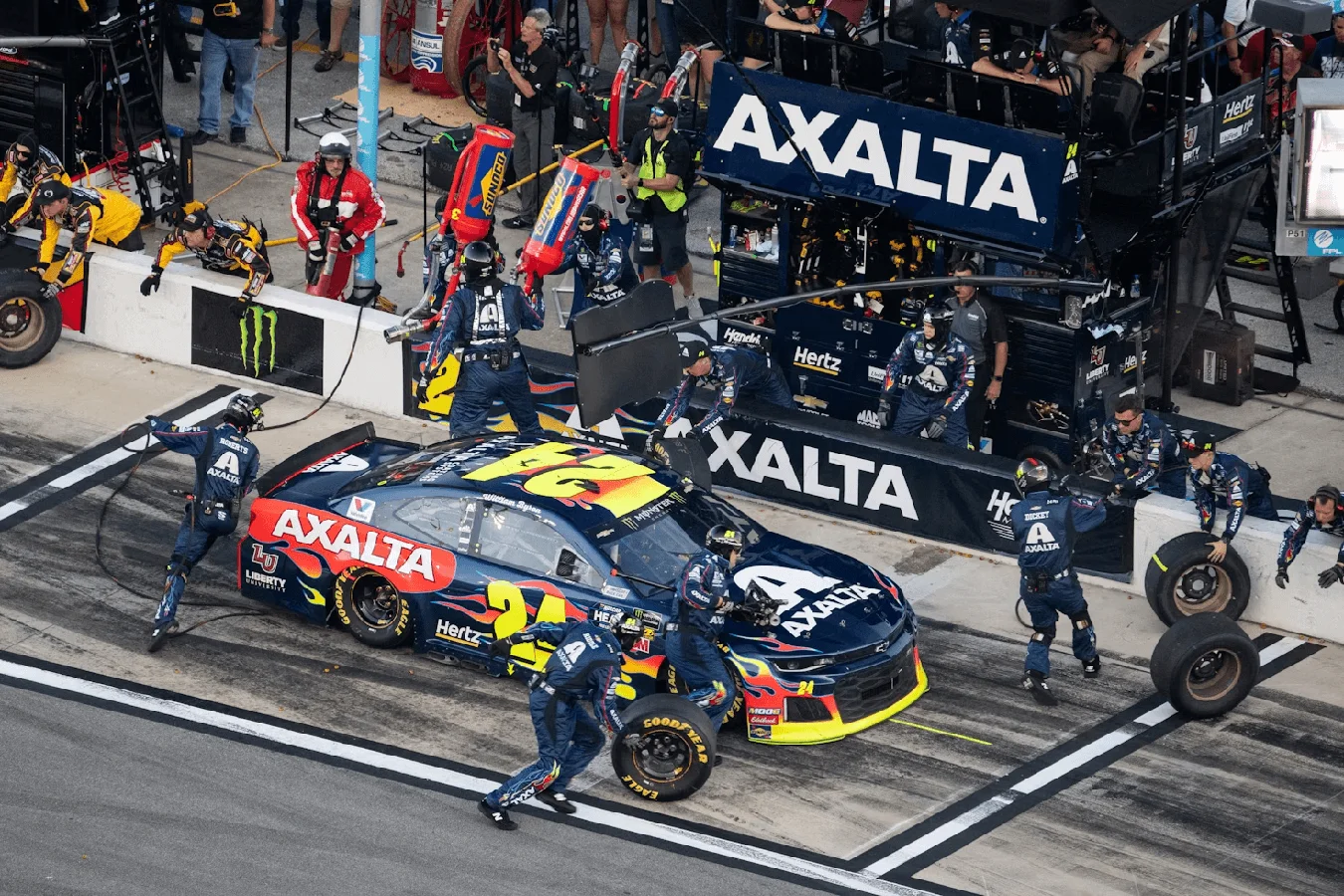Throughout the storied history of NASCAR, several powerhouse teams have experienced dramatic rises to the top, only to later become cautionary tales of the sport’s volatility. The story of NASCAR teams rise and fall is marked by triumph and turmoil, showcasing how quickly fortunes can change in stock car racing.
Red Bull’s Bold NASCAR Entry and Rapid Departure
Red Bull, known globally as a major force in Formula 1, entered NASCAR in 2006 with expectations to match its international success. While the team did not secure a championship, its reputation and steady improvements initially signaled a bright future. After struggling to qualify for races early on, Red Bull’s U.S. racing team soon began earning top-ten finishes and even recorded race wins.
However, sustaining these results required major sponsorships, and the costs of high-profile branding added financial pressure. The operation eventually became too expensive to continue, leading Red Bull to exit NASCAR and leaving fans questioning what could have been if funding had matched their ambitions.
Furniture Row Racing’s Meteoric Rise and Abrupt Closure
Founded in 2005, Furniture Row Racing made headlines as a single-car operation from Denver, a rarity among NASCAR’s major teams. Their perseverance paid off in 2017, when Martin Truex Jr. claimed the Cup Series championship. However, expanding to two cars and rising expenses forced the team to scale back after its championship run.

Despite clear determination and a dedicated fanbase, Furniture Row Racing could not maintain financial viability and ultimately ceased operations at the end of the 2018 season. Their story highlights both the rewards and risks of independent efforts in an expensive, sponsor-driven environment.
RFK Racing’s Decline from Multi-Car Giant to Midfield Struggles
During the early 2000s, RFK Racing stood as a beacon of success, clinching titles in 2003 with Matt Kenseth and in 2004 with Kurt Busch. The organization once fielded up to five competitive cars, making it a formidable presence in NASCAR’s upper ranks.
Unfortunately, RFK Racing could not maintain its momentum, slipping from winning championships to languishing in the midfield over a decade. While recent performances by Brad Keselowski and Chris Buescher have yielded occasional strong finishes, the team is no longer viewed as a benchmark for excellence as it once was.
Dale Earnhardt Inc.: From Iconic Winners to Merger and Obscurity
Dale Earnhardt Inc. celebrated major victories, thanks in part to Dale Earnhardt’s son taking the lead and delivering multiple wins for the team. Ownership issues and the star driver‘s exit in 2007, however, destabilized the organization. Following 24 Cup wins and two championships, internal turmoil led to the team merging with Chip Ganassi Racing after 2008.
Dale Earnhardt Inc.’s descent underlines the challenges of leadership changes and the fragility of racing dynasties without their foundational figures.
Michael Waltrip Racing’s Scandal and Ultimate Shutdown
Michael Waltrip Racing’s fall was both dramatic and controversial. The team’s involvement in the notorious ‘Spingate’ at Richmond, where Clint Bowyer’s spin appeared orchestrated to benefit teammate Martin Truex Jr., triggered a fierce response from NASCAR officials. The resulting investigation levied a $300,000 fine and stripped 50 points from each MWR driver.
This blow to its reputation and finances proved too severe. After tallying seven victories over two decades, Michael Waltrip Racing ended operations following the 2015 season, serving as a warning about ethics and integrity within the sport.
Stewart-Haas Racing’s Time at the Top and Present-Day Struggles
Stewart-Haas Racing, launched in 2009 and famously owned by Gene Haas, quickly joined the elite, winning championships in 2011 and 2014. Iconic drivers such as Kevin Harvick contributed to the team’s golden era, highlighted by Harvick’s runner-up finish in 2015.
Yet, in recent years, Stewart-Haas Racing—now operating as the Haas Factory Team—has dwindled to a single charter effort, far from its multi-car prime. Once a model of sustained success, it currently resides in the shadow of its former achievements.
Petty Enterprises: From NASCAR Royalty to Eventual Exit
Petty Enterprises carved its legacy as a dominant force, amassing ten championships shared by Lee Petty and his legendary son, Richard Petty. Despite early glory, the team’s fortunes faded in the 1980s, and subsequent decades yielded only sporadic highlights.
Relaunched under the Petty Motorsports name, Richard Petty’s efforts could not reverse the decline. Facing continued struggles, the outfit officially left NASCAR in 2021, ending a historic era for one of racing’s most celebrated families.
The stories of these seven NASCAR teams reveal the unpredictable nature of success and downfall in motorsports. Overseen by shifting financial landscapes, scandals, and changes in leadership, the trajectory of NASCAR teams rise and fall offers enduring lessons for new and veteran teams alike. As the sport evolves, it remains to be seen which organizations will shape the next chapter of NASCAR’s fiercely competitive world.
